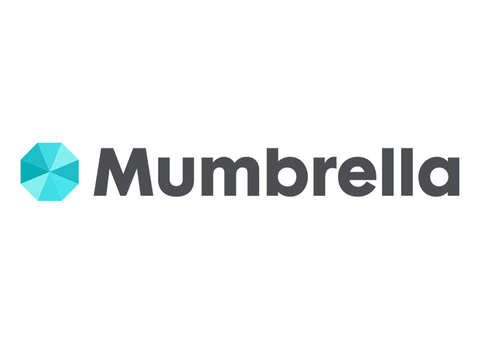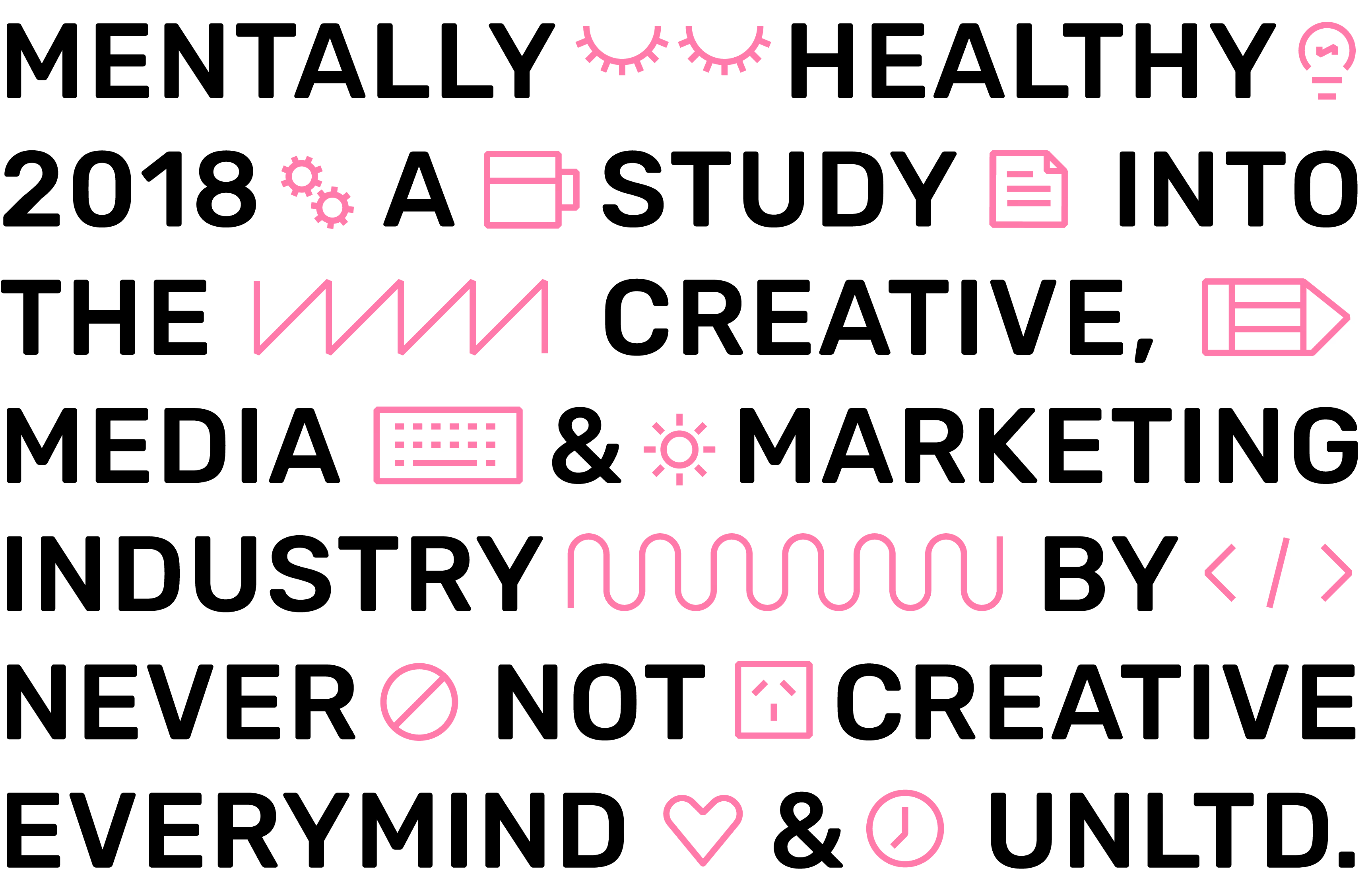
IN 2018, NEVER NOT CREATIVE, UNLTD AND EVERYMIND CONDUCTED THE FIRST MAJOR STUDY INTO THE MENTAL HEALTH AND WELLBEING OF THE MEDIA, MARKETING AND CREATIVE INDUSTRY IN AUSTRALIA. THE PURPOSE OF THE STUDY IS TO BRING TRANSPARENCY TO THE MENTAL HEALTH ISSUES AFFECTING INDIVIDUALS IN OUR INDUSTRY AND THE ATTITUDES TOWARDS MENTAL HEALTH.
The study ran during August and September with over 1,800 participants. 66% of respondents were women and nearly half of the sample were aged between 25 and 34. 82% lived in capital cities and nearly half worked in an organisation with 50 employees or more. 18% had children and 77% hold university level or post-graduate degrees.You can find a copy of the presentation from the launch event here. Listen to Episode 17 of the podcast for an audio commentary on the slides.
OUR MENTAL HEALTH
The study used the Depression, Anxiety and Stress Scale (DASS) to identify symptoms of depression and anxiety. Compared to the national data from 2015, the proportion of participants from our industry that showed scores falling within the ‘at-risk categories’ is higher, with 20% more participants showing symptoms of depression, and 29% more showing symptoms of anxiety compared to national average. Nearly 1 in 5 of us showed severe or extremely severe symptoms of depression, compared to 12% national average.
Whilst the stress and anxiety levels are very similar across the industry, the creative industry showed higher levels of depression with 61% of creative industry showing symptoms of depression compared to 53% in marketing and 46% in media.
DEPRESSION
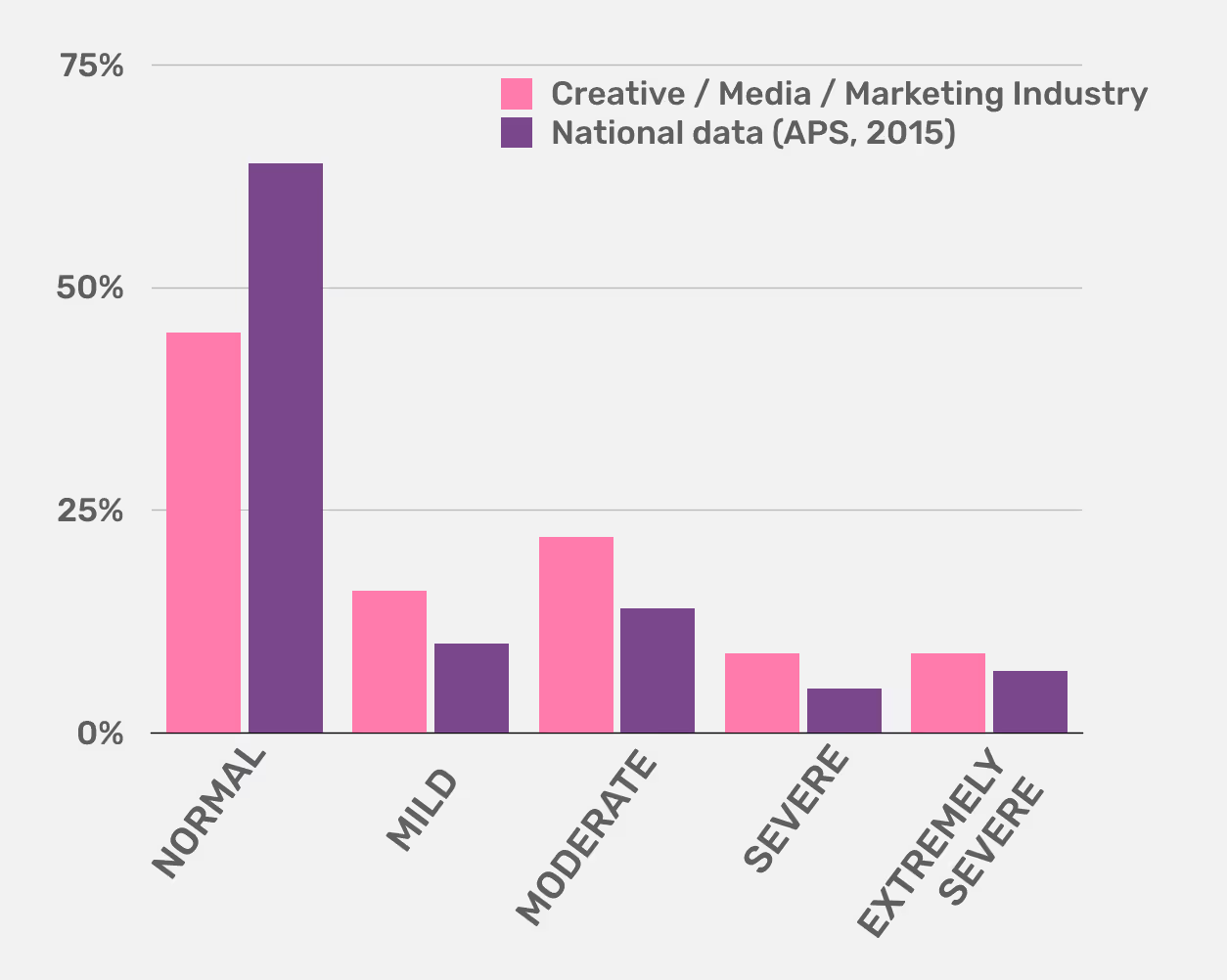

1 IN 4 SHOW SEVERE SIGNS OF ANXIETY
CAUSES
Looking at the causes, job satisfaction was identified as a key indicator of mental health. Those with higher levels of job satisfaction were less likely to show symptoms of depression or anxiety. Specifically, variety of tasks, learning new things and not doing the same things over and over and having decision authority on when and how you work were found to have a positive impact on mental health.
Stress is another key contributor to mental health with 57% of respondents showing symptoms of stress and 18% showing signs of severe or extremely severe stress. The key work stressors were the pressure we put on ourselves, pressure from others and having multiple responsibilities.
Nearly half of the industry works more than 8 hours a day and a third of us is working weekends at least once a month. Our eagerness to please and not let others down has also resulted in 75% of us working whilst not physically or mentally well.
Another key indicator of depression and anxiety was the amount of social connections. Higher social connections and frequency of seeing them resulted in lower depression scores.
ONLY HALF OF US ARE SATISFIED WITH THE WAY OUR ABILITIES ARE UTILISED

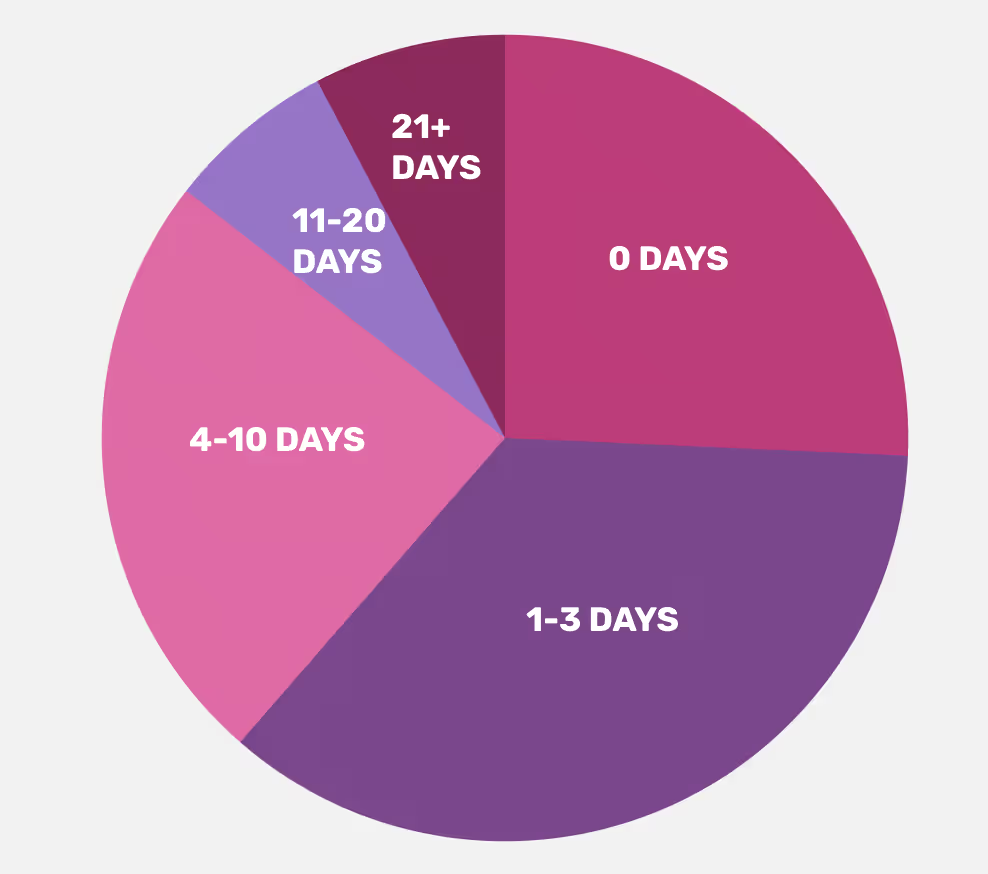
39% OF THE INDUSTRY HAVE WORKED MORE THAN 4 DAYS WHILE PHYSICALLY OR MENTALLY ILL IN THE LAST 4 WEEKS
ATTITUDES TOWARDS MENTAL HEALTH
The study also looked at the mental health literacy and attitudes towards mental health. As an industry, we are literate about mental health – 52% correctly identified the survey case study as depression. We are also very understanding and supportive with 89% of us willing to work closely with someone with depression. However, only 29% of us would tell anyone if they had been diagnosed with depression.
The perceived stigma also increased with age – whilst only 26% of those aged 17-24 felt an individual with mental illness would be treated poorly in our industry, the number increased to 48% amongst those aged 45-54.

RESPONDENTS ARE SEEKING HELP FROM THEIR WORKPLACE AS MUCH AS THEY ARE FROM PROFESSIONALS

focus on EMPATHY
The focus on mental wellbeing by business leaders has improved since Never Not Creative and Unltd came together to form the Mentally-Healthy Change group in 2018. However, responses were mixed when it came to the experience of empathy within our workplaces. Although the data tells us empathy is personally important to employees and that leaders genuinely wish to care for their people, it appears respondents are not always seeing empathetic intentions modeled because often 'the business comes first'. Indeed, the stronger the belief that a business puts profit first, the stronger the likelihood for people in the company to want to leave.
BECOMING MORE MENTALLY HEALTHY
Based on the findings of the study, there are certain key areas that employers and employees in the industry can focus on to improve their mental health. Job satisfaction is a key indicator of mental health and is arguably a more comfortable conversation topic than mental health.
Having a wider social network, lower stress levels and not working whilst unwell also showed clear positive impact on individual’s mental health.
With only a third of companies currently offering mental health support, and there not being any major relation between support offered and symptoms of depression and anxiety, there is room to improve the existing programs.
Of the participants, as many people had sought help from their workplace as from a professional so it’s important that organisations are prepared to provide support.
Going forward, the preferred method of support was identified as face to face (e.g. seeing a GP or Psychologist), followed by online, app and direct manager.
We’ll be working closely with the community – and our partners Everymind, Unltd and the organisations below – over the coming months to discuss these results and start defining and testing solutions.
If you have further thoughts, or would like to get involved, please reach out.
You can also download a PDF of the summary report findings here.
NEED IMMEDIATE HELP
If you require support or advice about any of the issues raised in this study please contact:
Lifeline
Telephone Crisis Support Ph. 13 11 14 – 24hr
www.lifeline.org.au/Get-Help
beyondblue
National depression initiative
Ph: 1300 224 636
www.beyondblue.org.au
Suicide Call Back Service
Ph. 1300 659 467
www.suicidecallbackservice.org.au
Headspace (12-25 years)
www.headspace.org.au
MENTALLY HEALTHY 2018 IS ENDORSED BY
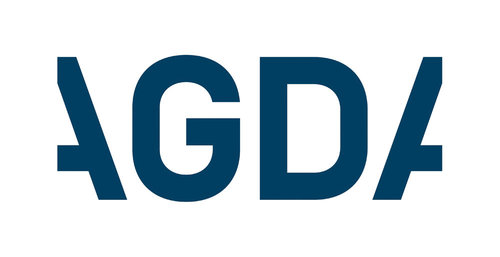
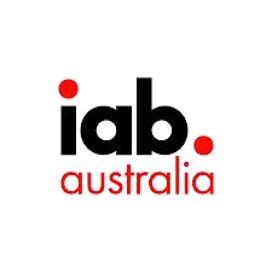

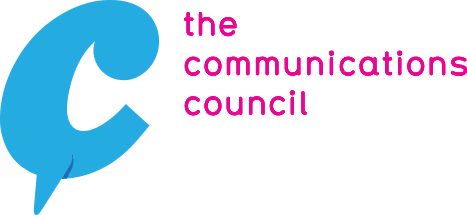

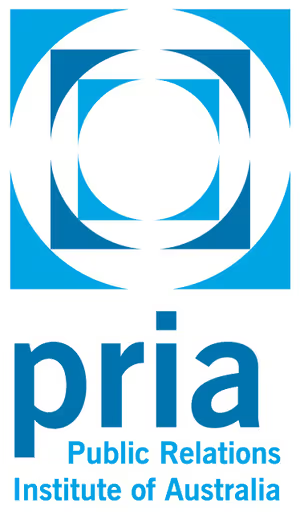
THANKS TO OUR SUPPORTING PARTNERS


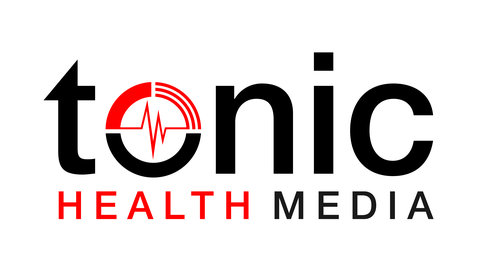
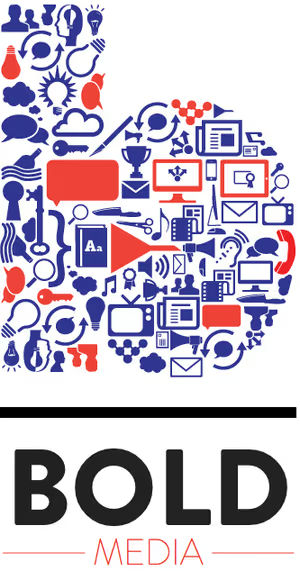


THANKS TO OUR DISTRIBUTION PARTNERS
